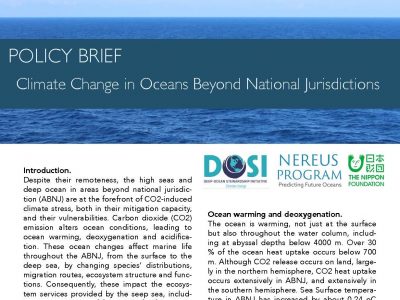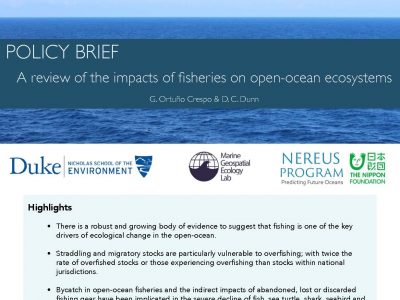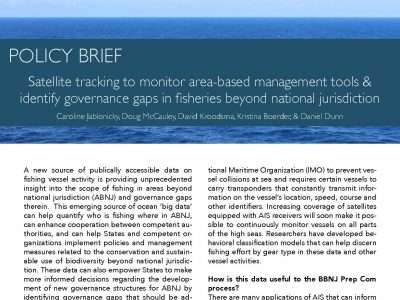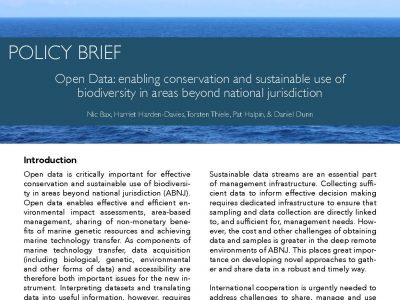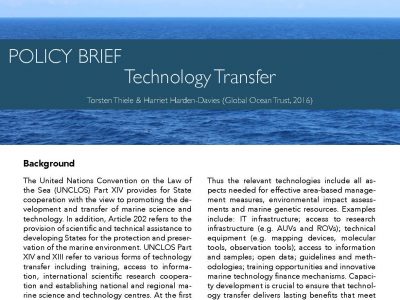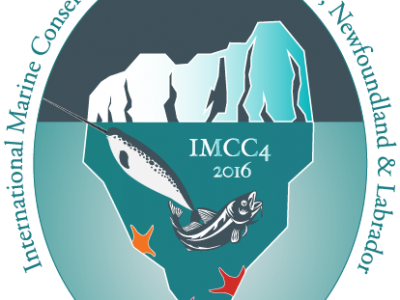POLICY BRIEF: Climate Change in Oceans Beyond National Jurisdictions
Despite their remoteness, the high seas and deep ocean in areas beyond national jurisdiction (ABNJ) are at the forefront of CO2-induced climate stress, both in their mitigation capacity, and their vulnerabilities. Carbon dioxide (CO2) emission alters ocean conditions, leading to ocean warming, deoxygenation and acidification. These ocean changes affect marine life throughout the ABNJ, from the surface to the deep sea, by changing species’ distributions, migration routes, ecosystem structure and functions.



